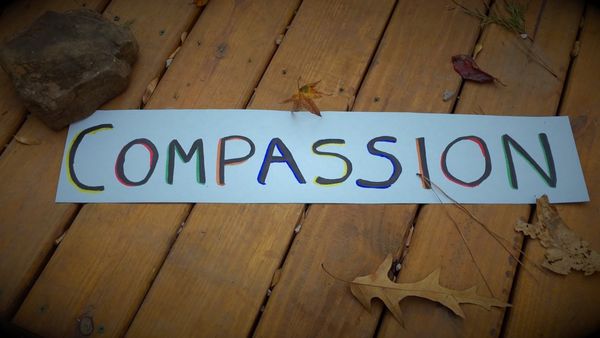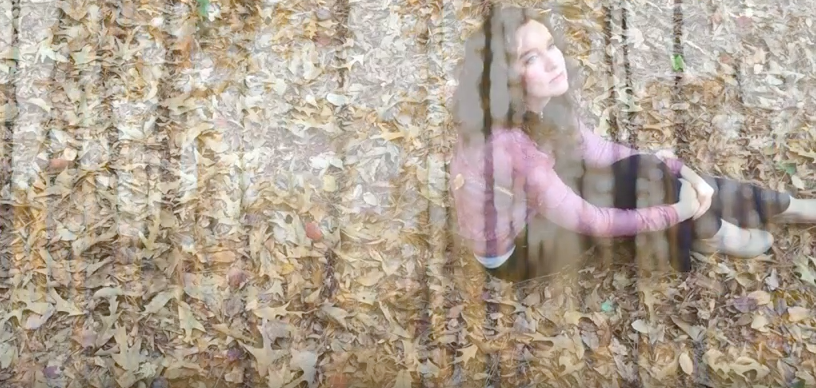Compassion.
This is the thing I see most missing from our national discourse as of late. Compassion... and empathy. Each of us is so sure that we are right that we fail to put ourselves in the shoes of another person. We listen to respond, and in doing so never actually interact with what is being said. We make assumptions about the other person based on our own personal experience without giving a thought to the fact that not everyone has lived the same life as we have. We belittle, we malign, and we dismiss. We listen defensively and talk over each other, perhaps terrified that someone else's life experience might make it inconvenient to cling to our world view. As someone who watches many internet arguments from the outside, I often wonder how anyone maintains any sort of healthy personal relationships or marriages. No counselor would ever suggest that a couple in conflict speak to each other the way that we do on Facebook, Twitter, or the Comments section. And I never see anyone getting anywhere with the sort of toxic communication that spews forth (imagine that!) when we do not have to look each other in the eye.

In a traditional mediation or conflict resolution situation, there are ground rules, and these rules are set at the beginning of the discussion. Each side gets to fully explain themselves without interruption. Name calling is prohibited (since a person who is being treated without respect will most likely cease to listen). If the ground rules are broken, the mediation cannot continue as nothing can really be accomplished. In mediation and counseling situations, someone will often respond to someone's point of view by saying something like, "so what I hear you saying is..." and then filling in with what the listener thinks was said. This not only lets the other person know that they were heard, but also gives them the chance to clarify their statement if needed. Real healing can begin in mediation when one person can say to another, "I understand that when x happened/when I said x, you felt x way. I am sorry." Dropping defensive postures, acknowledging the feelings of others as real, and perhaps taking ownership of your part in a situation are the only way forward.
In this turbulent post-election environment, remember that everyone you speak to is a person and has a story. They have a reason for doing what they do and feeling what they feel. They have had hardships and challenges that you do not know. Nothing should be dismissed as silly, evil, or irrelevant. You may feel uncomfortable or challenged, but you must listen. We all must listen if we are to move past this spirit of meanness that has brought us to the place we are today. And no matter what side of the aisle we are on, we must pledge to follow a common plea for going forth in the world: to "render to no one evil for evil; strengthen the fainthearted; support the weak; help the afflicted; honor everyone." Nowhere in this response from the Book of Common Prayer does it say to do these things "unless you think the person is just being silly" or "unless you, standing outside someone else's situation, absolutely know how they could have done it better" or "unless it never happened to you so it could not possibly have happened to the other person." People's experiences are real. People's emotions are real. And, speaking as a survivor, trauma is real. How can we be serious about uniting if we do not seek to understand those who are different from us?
Perhaps we are afraid that, if we really listen and understand, we will run out of responses and things to say. Maybe we will- and that would be okay. Sometimes having someone really listen is healing enough. No response needed. And maybe each of us would change.

In a few weeks I will be releasing an EP entitled Be the Change. The songs were born out of my observations of toxic and often hypocritical communication, violence, inequity, and intolerance. They are a call to true self exploration and active love in a world that often seems resistant to doing either. They are a challenge to choose what is good when presented with both darkness and light, and to come together even when it seems difficult. Perhaps the greatest summation (and convicting question) comes in the first song, "Hitch Your Wagon," which unabashedly borrows from the show Lost and from Dr. Jack Shephard's iconic statement to the squabbling, diverse assortment of crash survivors on the beach of "the island":
"If we can't live together... we're gonna die alone."
So how do we learn to live together? The first step is listening with an open heart, which I personally have committed to do in "Rise Up," the song for which this video was shot. I hope that you will join me in doing the same.
This is the thing I see most missing from our national discourse as of late. Compassion... and empathy. Each of us is so sure that we are right that we fail to put ourselves in the shoes of another person. We listen to respond, and in doing so never actually interact with what is being said. We make assumptions about the other person based on our own personal experience without giving a thought to the fact that not everyone has lived the same life as we have. We belittle, we malign, and we dismiss. We listen defensively and talk over each other, perhaps terrified that someone else's life experience might make it inconvenient to cling to our world view. As someone who watches many internet arguments from the outside, I often wonder how anyone maintains any sort of healthy personal relationships or marriages. No counselor would ever suggest that a couple in conflict speak to each other the way that we do on Facebook, Twitter, or the Comments section. And I never see anyone getting anywhere with the sort of toxic communication that spews forth (imagine that!) when we do not have to look each other in the eye.

In a traditional mediation or conflict resolution situation, there are ground rules, and these rules are set at the beginning of the discussion. Each side gets to fully explain themselves without interruption. Name calling is prohibited (since a person who is being treated without respect will most likely cease to listen). If the ground rules are broken, the mediation cannot continue as nothing can really be accomplished. In mediation and counseling situations, someone will often respond to someone's point of view by saying something like, "so what I hear you saying is..." and then filling in with what the listener thinks was said. This not only lets the other person know that they were heard, but also gives them the chance to clarify their statement if needed. Real healing can begin in mediation when one person can say to another, "I understand that when x happened/when I said x, you felt x way. I am sorry." Dropping defensive postures, acknowledging the feelings of others as real, and perhaps taking ownership of your part in a situation are the only way forward.
In this turbulent post-election environment, remember that everyone you speak to is a person and has a story. They have a reason for doing what they do and feeling what they feel. They have had hardships and challenges that you do not know. Nothing should be dismissed as silly, evil, or irrelevant. You may feel uncomfortable or challenged, but you must listen. We all must listen if we are to move past this spirit of meanness that has brought us to the place we are today. And no matter what side of the aisle we are on, we must pledge to follow a common plea for going forth in the world: to "render to no one evil for evil; strengthen the fainthearted; support the weak; help the afflicted; honor everyone." Nowhere in this response from the Book of Common Prayer does it say to do these things "unless you think the person is just being silly" or "unless you, standing outside someone else's situation, absolutely know how they could have done it better" or "unless it never happened to you so it could not possibly have happened to the other person." People's experiences are real. People's emotions are real. And, speaking as a survivor, trauma is real. How can we be serious about uniting if we do not seek to understand those who are different from us?
Perhaps we are afraid that, if we really listen and understand, we will run out of responses and things to say. Maybe we will- and that would be okay. Sometimes having someone really listen is healing enough. No response needed. And maybe each of us would change.

In a few weeks I will be releasing an EP entitled Be the Change. The songs were born out of my observations of toxic and often hypocritical communication, violence, inequity, and intolerance. They are a call to true self exploration and active love in a world that often seems resistant to doing either. They are a challenge to choose what is good when presented with both darkness and light, and to come together even when it seems difficult. Perhaps the greatest summation (and convicting question) comes in the first song, "Hitch Your Wagon," which unabashedly borrows from the show Lost and from Dr. Jack Shephard's iconic statement to the squabbling, diverse assortment of crash survivors on the beach of "the island":
"If we can't live together... we're gonna die alone."
So how do we learn to live together? The first step is listening with an open heart, which I personally have committed to do in "Rise Up," the song for which this video was shot. I hope that you will join me in doing the same.
